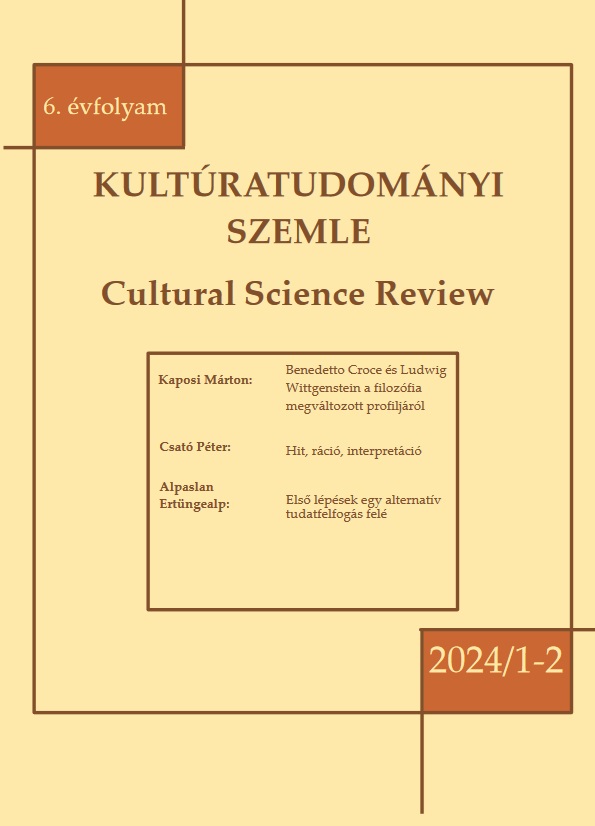Hit, ráció, interpretáció
Az istenhit mint hermeneutikai modell Stanley Fish neopragmatista értelmezéselméletének kontextusában
DOI:
https://doi.org/10.15170/KSZ.2024.06.01-02.02%20Abstract
Stanley Fish, American literary theorist and legal scholar, often points out that there are affinities between religious faith and literary interpretation, but he does so from an anti-foundationalist perspective which is dispenses with any religious motivation
on his part. The study explores this particular aspect of Fish’s interpretive theory within the broader context of classical pragmatist and neo-pragmatist philosophy. Hence, the article first provides an overview of the pertinent philosophical insights of William James and Richard Rorty, who have made attempts at dissolving the dichotomy between belief and knowledge. Then, it goes on to analyze a debate that took place between Fish and Richard Neuhaus, a Catholic priest, in 1996, which aptly
exemplifies the (neo-)pragmatist endeavor to displace the faith/knowledge dichotomy. The article further examines Fish’s contention – based on the exegetical guidelines of Saint Augustine – to the effect that the epistemological foundation of
interpretive claims formulated in textual analysis is no stronger (or weaker) than that of religious tenets. The study advances the argument that despite Fish's intentions, this generalizing concept becomes the foundation of a meta-theory that is
incompatible with his anti-foundationalist persuasion.

